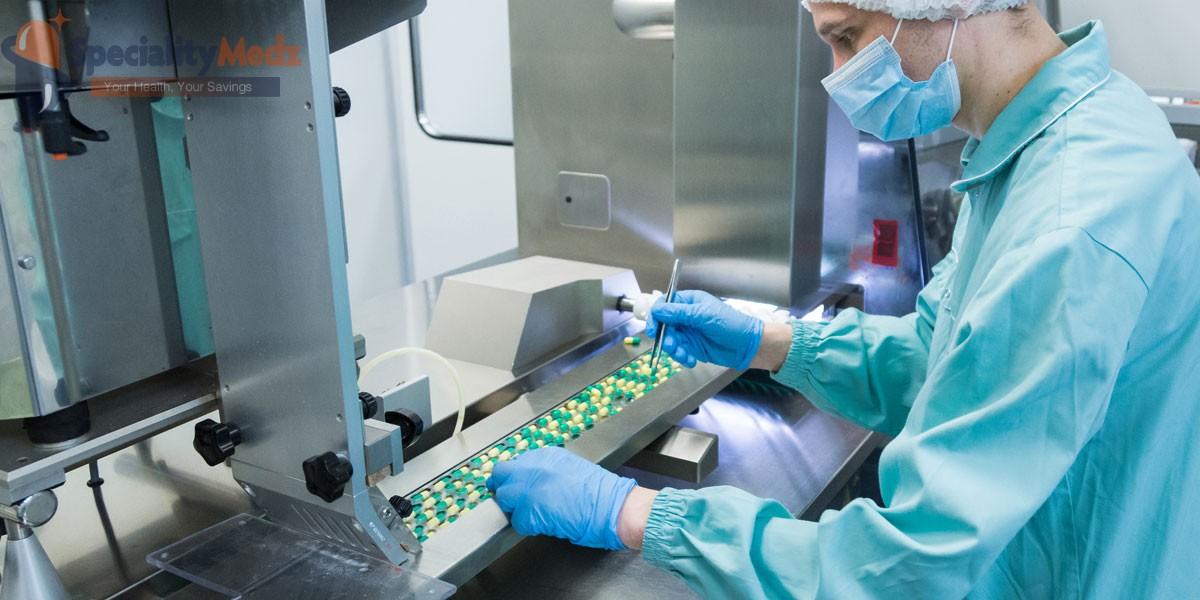Lenalidomide has emerged as a groundbreaking drug in the treatment of various cancers and blood disorders, significantly improving patient outcomes. This revolutionary medication has transformed the landscape of oncology and hematology, providing effective therapeutic solutions for multiple myeloma, myelodysplastic syndromes, and other hematological malignancies. As the demand for this potent drug continues to rise, finding a reliable Lenalidomide manufacturer is crucial to ensuring a steady supply of high-quality medication for patients worldwide.
Understanding Lenalidomide
Lenalidomide is an immunomodulatory drug (IMiD) that works by enhancing the immune system’s ability to attack cancer cells. It inhibits angiogenesis—the process of blood vessel formation—which is crucial for tumor growth. Additionally, it modulates the inflammatory response and enhances T-cell and natural killer (NK) cell function, making it a highly effective treatment option for various cancers and blood disorders.
Transforming Multiple Myeloma Treatment
Multiple myeloma is a type of blood cancer that affects plasma cells in the bone marrow. Traditionally, treatment options were limited, and survival rates were relatively low. However, the introduction of Lenalidomide has revolutionized multiple myeloma therapy by significantly extending progression-free survival and overall survival rates.
Patients receiving Lenalidomide in combination with dexamethasone or other targeted therapies have shown remarkable improvements. The drug’s ability to inhibit the proliferation of myeloma cells and enhance immune response has led to better disease management and improved quality of life. Many leading oncologists now consider Lenalidomide as a standard of care for newly diagnosed and relapsed/refractory multiple myeloma patients.
Addressing Myelodysplastic Syndromes (MDS)
Myelodysplastic syndromes are a group of disorders caused by defective bone marrow function, leading to insufficient production of healthy blood cells. Lenalidomide has demonstrated exceptional efficacy, particularly in patients with del(5q) MDS—a subtype characterized by a deletion in chromosome 5q.
For these patients, Lenalidomide reduces the need for blood transfusions, enhances red blood cell production, and improves overall hematologic response. By stabilizing the bone marrow environment and reducing abnormal cell proliferation, it helps patients achieve better disease control and prolonged survival.
Potential in Other Cancers and Blood Disorders
Beyond multiple myeloma and MDS, researchers are exploring Lenalidomide’s potential in treating various hematologic and solid tumors. It has shown promise in lymphomas, chronic lymphocytic leukemia (CLL), and even certain types of aggressive tumors. Its immunomodulatory and anti-angiogenic properties make it a valuable candidate for combination therapies in cancer treatment protocols.
The Role of Lenalidomide Manufacturers in Global Healthcare
With Lenalidomide becoming a cornerstone in cancer and blood disorder treatments, a consistent and high-quality supply is essential. A reliable Lenalidomide manufacturer ensures that patients worldwide receive safe and effective medication.
Pharmaceutical manufacturers producing Lenalidomide must adhere to strict quality control measures, regulatory guidelines, and Good Manufacturing Practices (GMP) to guarantee product efficacy and safety. The increasing global demand has led to the rise of generic Lenalidomide manufacturers, making the drug more affordable and accessible to a broader patient population.
Enhancing Accessibility and Affordability
One of the challenges with innovative cancer therapies is the high cost, which limits patient access, especially in low- and middle-income countries. Generic Lenalidomide manufacturers have played a significant role in reducing costs while maintaining drug efficacy. By ensuring competitive pricing and widespread availability, these manufacturers help bridge the gap between medical advancements and patient affordability.
Governments, healthcare organizations, and pharmaceutical companies continue to collaborate to improve access to Lenalidomide. Regulatory approvals for generics and biosimilars further drive competition, leading to more cost-effective treatment options for patients in need.
Future Prospects of Lenalidomide in Oncology
The future of Lenalidomide in oncology and hematology remains promising. Ongoing research is focusing on its combination with novel agents, personalized medicine approaches, and potential new indications. Clinical trials are exploring how Lenalidomide can enhance the efficacy of emerging immunotherapies and targeted treatments, offering hope for even better patient outcomes in the coming years.
Additionally, advancements in pharmaceutical manufacturing techniques will continue to improve the production process, ensuring higher purity levels and better bioavailability. A strong network of Lenalidomide manufacturers will be instrumental in sustaining this progress and meeting the growing demand for this life-saving drug.
Conclusion
Lenalidomide has transformed the treatment landscape for multiple myeloma, myelodysplastic syndromes, and various other cancers. Its immunomodulatory, anti-angiogenic, and anti-proliferative properties have led to significant improvements in patient survival and quality of life.
As demand for Lenalidomide continues to grow, the role of a reliable Lenalidomide manufacturer becomes increasingly vital in ensuring global access to this essential medication. By maintaining high-quality production standards and improving affordability, manufacturers play a crucial role in bringing hope to cancer and blood disorder patients worldwide. Ongoing research and advancements in drug development will further solidify Lenalidomide’s position as a cornerstone of modern oncology and hematology treatments.



